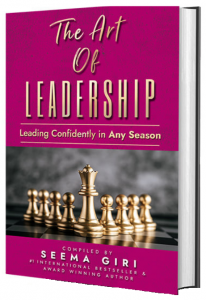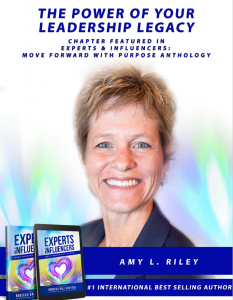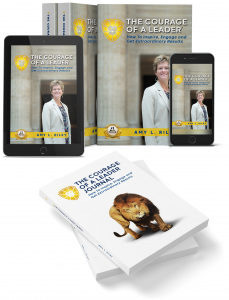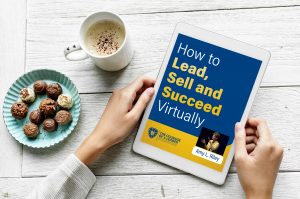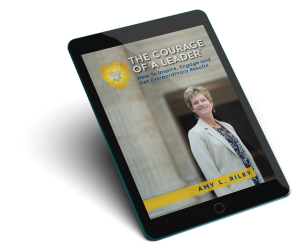Why do we drift away from our values and our integrity? Is it inevitable? Does it happen to everyone? And what can we do when it happens?
John Blumberg joins me to answer these questions. John is a national speaker and author and his thought leadership on integrity deepens and broadens our understanding and experience the concept of integrity.
This conversation will make you think!
About the Guest:
John G. Blumberg is a national speaker and author. His thought leadership on integrity may very well deepen and broaden how you personally experience the concept of integrity.
In 1996, John left behind an 18-year career he loved … one that had taken him from CPA to worldwide recruiting responsibilities at Arthur Andersen.
Over the two decades that followed, John has evolved his general focus on leadership and culture … to a laser focus on precisely what fuels them.
John is the author of four books. His most recent two books are both titled Return On Integrity. One of them was written specifically for the leader-at-the-top of any organization and is subtitled The New Definition of ROI and Why Every Leader Needs to Know It. The other was written for everyone … regardless of title, role or stage of life. It is subtitled, The Individual’s Journey to the One Essential Thing.
Leading business author Patrick Lencioni describes Return On Integrity as “the most comprehensive compelling guide to core values I’ve ever seen. It’s a treasure for leaders who understand the importance of culture.”
About the Host:
Amy L. Riley is an internationally renowned speaker, author and consultant. She has over 2 decades of experience developing leaders at all levels. Her clients include Cisco Systems, Deloitte and Barclays.
As a trusted leadership coach and consultant, Amy has worked with hundreds of leaders one-on-one, and thousands more as part of a group, to fully step into their leadership, create amazing teams and achieve extraordinary results.
Amy’s most popular keynote speeches are:
- The Courage of a Leader: The Power of a Leadership Legacy
- The Courage of a Leader: Create a Competitive Advantage with Sustainable, Results-Producing Cross-System Collaboration
- The Courage of a Leader: Accelerate Trust with Your Team, Customers and Community
- The Courage of a Leader: How to Build a Happy and Successful Hybrid Team
Her new book is a #1 international best-seller and is entitled, The Courage of a Leader: How to Inspire, Engage and Get Extraordinary Results.
https://www.linkedin.com/in/amyshoopriley/
Resources mentioned in the podcast
The Inspire Your Team to Greatness assessment (the courage assessment).
How can you inspire our team to be more proactive, take ownership and get more done?
You demonstrate and empower The Courage of a Leader. In my nearly 3 decades of work with leaders, I’ve discovered the 11 things that leaders do – even very well-intentioned leaders do – that kill productivity.
In less than 10 minutes, find out where you’re empowering and inadvertently kills productivity, and get a custom report that will tell you step by step what you need to have your team get more done.
https://courageofaleader.com/inspireyourteam/
Find John Blumberg’s Return on Integrity books here: https://www.blumbergroi.com/book/
Find John’s first book, Good to the Core, Building Value With Values, here: https://a.co/d/h04zjEa
Thanks for listening!
Thanks so much for listening to The Courage of a Leader podcast! If you got inspired and/or got valuable leadership techniques you can use from this episode and think that others could benefit from listening, please share using the social media buttons on this page.
Do you have questions or feedback about this episode? Leave a comment in the section below!
Subscribe to the podcast
If you would like to get automatic updates of new The Courage of a Leader podcast episodes, you can subscribe to the podcast on Apple Podcasts. You can also subscribe in your favorite podcast app.
Leave us an Apple Podcasts review
Ratings and reviews from our listeners are extremely valuable to us and greatly appreciated. They help our podcast rank higher on Apple Podcasts, which helps us ignite The Courage of a Leader in more leaders! Please take a minute and leave an honest review on Apple Podcasts.
Teaser for next episode
Stay tuned for our next podcast episode – Authority for Growth: Insights from the Military and the Courage to Transform Your Leadership – with Eric Lazar.
Come back to learn how you can be an effective leader and engage those around you.
Transcript
Why do we drift away from our values and our integrity? Is it inevitable? Does it happen to everyone? And what can we do when it does happen? John Blumberg joins me to answer these questions. John is a national speaker and author, and his thought leadership on integrity deepens and broadens our understanding and experience of the concept of integrity. This conversation will make you think and make you think in important ways.
Amy Riley:Welcome to the Courage of a Leader podcast. This is where you hear real life stories of top leaders achieving extraordinary results, and you get practical advice and techniques you can immediately apply for your own success. This is where you will get inspired and take bold, courageous action. I am so glad you can join us. I'm your host. Amy Riley, now are you ready to step into the full power of your leadership and achieve the results you care about most? Let's ignite the Courage of a Leader.
Amy Riley:John Blumberg, thank you for being here on the Courage of a Leader podcast today.
John Blumberg:Thank you, Amy. Such a pleasure to be here with you.
Amy Riley:I'm excited for the conversation that we're going to have. We are going to discuss what you've coined, the drift, this all too human phenomenon of drifting away from our values, drifting away from our integrity. We're busy with work or with life or whatever, and all of a sudden we realize, Oh, we're not who we want to be in this situation. We're not operating the way that we know that we could and we want to. So tell us, how does, how does this drift happen?
John Blumberg:You know, it's interesting that when I was writing my second book called Good to the Core, Building Value with Values, I was sitting in a Starbucks in Naperville. I always thought writers went to mountain chalets to write, but I'm sitting at the table in a Starbucks, and I wrote this sentence that I had no idea it would be the go to for so much of my work around drift. And it was the idea that we don't go running away from our values. We go drifting away, and one day we wake up in a place we never meant to be, drifting in a direction we never would have chosen. And in so many ways, it seems to really resonate with people, because we tend to resonate with what we know to be true. And the truth is that all of us have drifted, and the bigger truth is all of us will drift again. The question is, do we see it? Do we know it? Can we recognize it in the midst of our day to day experience, but there's something very human nature about that. Yeah,
Amy Riley:so immediately, John, I'm hearing we're not necessarily playing the game of never drifting, but the game is, do we see it? Do we notice it when it happens, and how quickly do we see or notice it's happening?
John Blumberg:That's That's exactly right. And it is the idea that, well, the truth is deep, deep down, we do know when we're drifting. It's just that it starts so deep and it's so subtle oftentimes there, there probably are some cases where somebody just does something really different than who they are in a given moment, but for the most part, the bigger drift risk is when it's so subtle. It doesn't happen overnight, it happens over time, in a context that is constantly changing, and so I think that's why it can be a little bit sneaky when it you know, it comes upon us. It's that idea that a person that really veered away, they didn't veer away with one decision, they veered away with 100 decisions, but all of a sudden, on the 100 and first, it is the moment that the drift brings on all of the consequences of it. Okay,
Amy Riley:okay. Is that when we normally realize it is we've got some consequences in our face, like all of a sudden the drift has created the big snow bank in front
John Blumberg:of us? Well, that's a good way to think about it. What you hope is before you ever get to that point, you either have recognized it because of the inner work that you've done, or and when you've done all the inner work, the drift still happens because the context around us is constantly changing. But if we're grounded, then it is easier to see our drift. But I would still say, no matter how. Grounded you are with a changing context around you. You're always vulnerable to the drift. It's just a question of, again, how fast can I recognize it? I do have a concept in my book that I talk about identifying your drift catchers. These are people that really know who you are, and you give them permission to call you out on the drift without having to justify it, they just name it. It just Amy. It seems like you're drifting right now. And if all of a sudden somebody tells me that it that's all I need is because it's a wake up call. It's like our alarm that goes off to say, pay attention. And if I've done my inner work, I know what to connect to, no matter where I am in the drift so sometimes having a drift catcher can be helpful. Of course, they can't be with you 24 or seven, but they know you well enough that they can spot it fairly quickly. I remember one time I was this is not my normal audience in speaking, and it's probably my most terrifying. I don't get stage fright, and I can talk to the C suite at there's no nerves on that for me. But one day, I was doing a favor for a friend who had left a big consulting job to go be an eighth grade teacher, and he asked me if I would talk with him about core values. And this was like terrifying how, how is eighth graders going to respond to this one to do a Q and A at the end? And I've been talking about the drift. And Joe raised his hand and he said, Mr. Blumberg, do you think other people see you drifting before you see it yourself? And fortunately, I was trying to figure out where he was coming from, and I just paused, and I just looked back, and I said, You know what? I think you actually know the answer to that question. What do you think he says, oh, yeah, because I knew by the eighth grade you've already had the drift experience. What he had seen is, wow. There are other people that actually sometimes will call you out on it, and they could see it. So there's truth to that, but we're with ourselves, 24/7, and if you've done the grounding, you always have a checkpoint every single day to see where I am. Am I at my core? Or have I started drifting away? John,
Amy Riley:I have at least three follow up
John Blumberg:questions to what you've said already, because it's piquing my interest.
Amy Riley:the concept of integrity. In:John Blumberg:Thank you, Amy, thanks for having me.
Amy Riley:Yeah, absolutely. So I'm going to back up a little bit here, and it was going to ask why the drift happens. You've talked about the context changing. Is there anything else that you can say about about why this might happen?
John Blumberg:Yeah, I think for one thing, and this really happens, probably even starting in middle school, but it's the concept of peer pressure. And peer pressure just shows up in a lot of different ways. I think sometimes, when somebody feels like they're on the verge of losing their job, or maybe they have financial strain, or maybe what's creeped inside of them is an element of greed just going to get more and more that doesn't again, happen overnight, but happens over time. It could be that in an organization that really has a very weak culture, or not a very good culture, and also be an effect that you know can cause this drift to happen and. I think in many cases, it's some it can be a supervisor or a boss that one isn't a good example of leading from the essence of integrity, but also is feeling the pressure of metrics and measurements and constant performance that needs to play out in an organization, those can creep in. And so what's interesting about this is, sometimes what causes the drift is a very negative thing, a bad thing, but oftentimes, what causes the drift is a good thing, like technology or metrics and measurements. It could be the intention to do really well for my family, and all of a sudden, the greed can kick in. So there's several reasons why this could happen. What I always suggest is that one way to discover where I am in this is to look out and see what you notice going on in the world. Okay, what is happening around that you think puts pressure on integrity and pressure on core values. And if you can get really aggressive at identifying what those dilemmas are, oftentimes, if you're honest with yourself, you step back. And one of the reasons we can see it out there is because there's some form of it going on in here. Oh, that was a
Amy Riley:really great, helpful list that you just went through, John, and I'm assuming what's happening for the listeners is what's happening for me, as you were talking about them, like, oh yeah, I see when that's affected me, when that's affected me. So you said context, changing, peer pressure, a weak culture, a not great culture, in an organization, in a family, right leaders around us. It can be negative or can be positive influences. Right technology, metrics, our intention. I think I had a drift crisis. John in college, I think I had played the game of trying to figure out, what do different teachers, what are different authorities, what do different people and groups want or expect from me, and how do I provide that? And I was so busy trying to provide what I thought others wanted from me, that all of a sudden, I was like, who am I and what do I stand for? Well, you know, like, I I'm hearing different kinds of messages coming out of my mouth based on the situation and who I'm talking to, yeah, like, there's situational awareness and there's situational contextual changing of our messaging. But I think this is getting a little too core here.
John Blumberg:Yeah, and think about that as you're thinking about your college days. The truth is, the what was going on there was you were trying to show up for other people. You were trying to do everything that you could, which is always the clothing of a good intention. That's why, with a dilemma, it can be a bad thing, unhealthy thing, but it also can be great intentions that just go where the end justifies the means. And one thing I've noticed is one of the dilemmas is we get so focused on the outcome, the results which there's a lot of reason to pay attention to that. The question is, are you? Are you So grabbing the the end in mind that you're destroying everything along the way to actually get there, and so that the the good intention of an outcome itself can cause a drift that's really where metrics and measurements fall in is that that's an intended outcome that is constantly measured in ways no generation has been able to measure like we measure today. 24/7 so deep on every detail. And I think we're not, we're not being truthful of the impact all of that can have on core values and integrity and being as you described, raising the question, Who have I become? Who am I? Yeah, and the truth is, who you are is always at your core, regardless of where you take it. It's always there, waiting to call you back, to call you home.
Amy Riley:That's a lovely sentiment to ground ourselves in. I wrote that one down. You are you're always you at your core, because you've already said, we have already drifted, and we are going to drift. Yes, we might be in a bit of a drift right now, right? But always know that who we are, what's important to us, our values are always there at the core. Oh,
John Blumberg:we always there at the core. And you know, one thing that really dawns on me in full disclosure, is when I was writing Return on Integrity, if I remember it exactly the way it played out. Malcolm Gladwell says we don't necessarily remember things the way they actually happened, but the. Way I perceived that it happened when I started writing the book. The first third of the book is dilemma. This is what puts pressure on. And I think I was thinking, if we could get rid of the dilemma and integrity would just flow. And I don't believe that to be true. No, the dilemma is a problem, but it's not just a problem. It's a great teacher for us, including the drift. In other words, sometimes we have to drift to be able to understand the value of the core to begin with. And so oftentimes it's not so much of thinking about, okay, I need to get rid of the drift. It's about how to rediscover my core so that when the drift begins to happen, I am on top of that. But if I just say I want to try to get rid of the drift, what we end up doing is we end up playing the game rather than becoming the part that we were meant to be.
Amy Riley:Oh yeah, very wise. What you just said there. It's just what's so in our world right now, right like we have cultures, we have leaders, we have intentions, we have metrics, like we just can't get rid of that and all of the intended or unintended consequences of those so don't play that game. But let the dilemma, let the drift be a teacher, and let it allow us to rediscover our core, our values. So you talked about being a checkpoint for ourselves, right? So we've done the work. I'm assuming that means we've done the work on values. We know what's important to us. We know what's critical to us. That's not a list of 27 things. It's maybe a list of five things you've already said notice what's going on in the world that could tee up create dilemmas for us. What else would you say about being a checkpoint for ourselves on this in so
John Blumberg:many ways? Amy, I would say that it's an issue of awareness. And so if you think about those first two that you mentioned, it's an awareness of who I am. And that's a whole journey in itself that takes a lot of work. It's not like getting 30 words off of every now and then I'll get somebody to say, can you just give me the best 25 values you've ever heard someone Express? And then I'll just pick my top five. Well, the truth is, it sounds so cliche, but it's not about the destination. It's about the journey. It's about the digging process to help you understand it. And I would say that's not an afternoon exercise that's like over a year of just continuing to do some on it and put it away, do more and put it away. However, the other is being aware of what's going on around you, and so if you have an awareness, then you're much more likely to be able to stay within this essence of integrity, committed to the values at your core, not as a compliance exercise, but as an expression of what you have claimed to be at your core. So in many ways, this is so much about self awareness and contextual awareness of what is going on and being honest about that. And in many ways, particularly in our culture, there's certain things that almost you seem. It's almost that if you criticize, that people think, What in the world are you thinking? It's become so much of a confirmation bias on some of these dilemmas that you actually sound like the oddball to try to call it out. And so it can be very, very difficult, but it doesn't excuse you from the awareness now you can also make what's going on around you as an excuse. Well, this everybody's doing it, or I don't see a leader at the top of the organization, or somebody in my C suite, they don't seem to be doing it. So why would I? Yeah, and that, that is a great drift in itself, before you ever begin, you know, ever begin the journey. So really, so much of it is being aware internally, and then being honestly aware externally, knowing that all of it is a teacher, all of it is a is a teacher. And so there for there is no enemy of integrity. There's simply a lack of awareness of it. And that, I think, is what can be a turning point for people to be more honest with themselves and be more honest with, you know, with others in an organization that they work for. One of the things I have found is that when you start digging to your core, it can get messy, and the more you see, the more you see. So I always say is you start digging. You need to go in prepared for a lot of self grace. And what's beautiful about that is the more grace you give yourself in the journey, the more grace you give others that are struggling as well. And so you know the value of it, so you're willing to give that a. Way when you see somebody else that's actually drifting too,
Amy Riley:yeah, really important. What you've said here, John, that this is a journey, a journey in the self awareness, in the contextual awareness, right? You're not going to like, make your list of values, figure out your integrity, get it, get that all typed up on a page, and then you set it on the shelf right. Prepare to dig in. And I love this invitation for self grace. And if we look at it rationally, it's like, goodness, look at all these things that we've talked about in a really short period of time that can cause dilemmas, negative and positive forces in our world. So of course, we're going to have dilemmas. Of course we're going to have drift, right? So that's easy to say, maybe in our heads, right? But how do we bring it into our hearts and really feel it when we're on the journey, and we're noticing it's like, oh, I don't, I don't like, what's going on here. I don't know if I'm strong enough to stand up in this moment. Like, how can I continue to look at this? How do I find my entry points? How, how do I still be me, right? Like, how, how do I find my ways to show up in ways that feel authentic and in integrity with me in, you know, when, when I'm maybe swimming in some murky water? And
John Blumberg:that's the truth, that the context often makes many things murky. It becomes very gray, sometimes very dark, and so it's even hard to see if you're not if you're not grounded. I think so much of this digging process takes exactly what you talk so much about, and that it does take courage. It does take the willingness to dig within, even if you don't know anyone around you, that is is is doing it. And you know, just as you were talking earlier, dawns on me. You know, I need to be authentic. I need to be me. The question is, do I even know who that me is to begin with? I can't even be my authentic self if I've ever, if I've never actually done the work to get there, and that, again, is a is a process to do that. And I always caution people when they're digging to their core, to be careful, to not let the outcome become the enemy. In other words, I want to get it named so I can start living that the ego loves that because it's now in control again, as opposed to saying, No, I need to go down this vulnerable journey to discover the core within me. And that, again, can be a messy process, but once you've discovered it, then you know your authenticity, and in many ways, it's easy even to see in the darkness.
Amy Riley:Lovely, lovely. I'm a how to gal, John, so I was making some notes. How do we put ourselves on this journey, right? How do we stay actively involved in it, right? So we are that person who is checking in and doesn't, all of a sudden find themselves way far adrift from from who, who they want to be. So I was writing down ideas like journaling or reflecting like finding those times in our weekly process, a commute ride home, or, you know, lunch on Friday, or, you know, to kind of look at, where is it, at what, what's happened this week, maybe processing out loud with somebody, A partner, right? Or a mentor, or someone you've invited to be a drift catcher for you. Anything else you would add there? I
John Blumberg:always say this isn't going to the mountaintop on Friday and coming down with your, you know, your values on Sunday. It's much more organic as you describe it. Work on it for a little bit. Put it away. Work on it a little bit more, and what you'll notice is, when you start working on it, life will start to teach you what they are. In other words, you'll be in a meeting that's not going very well, and either You'll sense that what's wrong here, or in a meeting that's going really well, and there's a lot of beautiful energy there, what what is right here, and so if you let your everyday relationships and choices and decisions and just notice what's on your calendar and as you're living it out, what feels right what doesn't feel right now, I also encourage people to move beyond their behaviors, their wants and their needs. We often want to claim those as our core values, and those are not core values. Those are the expression of potentially a core value. But if we tend to make our list built on behaviors, wants, needs, opinions, beliefs, what happens is, is that we tend to play the part. In other words, it's a compliance exercise. As. It as rather than being in my core and living in the Essex essence of integrity, which is a state of being. And so if you get the core right and understand really what is a core value, then you actually will be able to express all of those other categories at a much higher, much higher level. So it is a process of the of the digging. Now I actually say that integrity is not a core value. It is the fabric of every value. In other words, it's it's what cohesively holds the fabric of all of the core values you name together. And always find it interesting that no core value stands on its own. Your core is made up of a collection, and I don't know how many that is, although the number you named is generally right in the middle of where I think it's somewhere between three and seven. What I do know is this is you cannot live what you do not remember. And so in other words, you have to know these values and trust they're going to keep getting deeper and deeper. Your intimacy with them, your understanding of them, becomes a daily a daily practice.
Amy Riley:Great, great. John, can you give an example? What would it be, something that's at the behavior, want or need level that you'd be like, you know, that's that's not quite cap, that's not capturing the core. And what would be an example of a value that captures the core?
John Blumberg:Yeah, that's a great question, and I always hesitate to give an example, because great people say, Oh, that's a good one. I want to put that on my list. But let me give you this one because I put it in the book. Okay, that's the publisher said. You got to give a real, concrete example. So sometimes people will put listening as a core value, and that's wonderful, but that's really a behavior that's not a core value. It's really a behavior, which is why you have to remember that behaviors, wants, needs and core values are all important, but they play different roles. So I would say listening is a behavior, but let's just say that same individual discovered that respect is a core value all of the sudden. In fact, I remember going through a listening course, and in the course they were teaching things like mirroring and pacing, you can show up to look like you're listening to draw the other person in. What I would suggest is that violates integrity, that there that that is a disintegration. Whereas if you show up to genuinely listen from the core value of respect, it brings together. And one thing I like to always say is that core values never divide. They always are cohesively bringing things together in the way I see integrity, I would say that it's about being whole and it is about being undivided. It's about actually integrating. And so anything that separates or divides generally, is not a core value, which is a way to kind of differentiate that from behaviors, wants and needs. So if you think about this, if you really are living from a place of respect, it's almost impossible to divide. It doesn't mean won't show up with tough observations, but it's out of respect. So so somebody could actually, if they don't know, one of their values is respect or just haven't done their inner work, but they got really good at listening. Listening starts to drift from the motivation of why you're listening to begin with.
Amy Riley:Thank you that it that example really helps, and I understand sometimes your hesitancy in putting the examples out there, but this ties to the reason that I want to speak about courage in leadership. I found that there was too much leadership literature and guidance out there that was behavior focused go up and do this and this and this and this, like, like a robot, right? And that there wasn't enough focus on our intention, on our beliefs, on on how we want to show up. And like you say, if we're showing up with the intention of being respectful, a lot of great behaviors that are going to come as a result of that. You don't have to focus on demonstrating these 12 different behaviors if you're coming from that intention of respect that is this. Oh, go ahead, John. I was
John Blumberg:just going to say that is, that's gold, right there. Amy, is that if you, if you really are grounded at the core level. And again, let's just use respect. You don't have to worry about the behaviors, because coming from respect, the right behaviors are going to show up because the intention is grounded in the core. But I would also say in the work that you do on courage, I don't think you can do this work. And. Lead from this without some great degree of courage, because there will be people that will come at you if even when you're trying to do all the things that are right. So courage, very much, is part of the process. In some ways, we might say you really need courage to be able to do the great inner work, but more importantly, to live it out. Yeah,
Amy Riley:I couldn't be more aligned, John. Now I know some of what you have said has already answered the next question I'm going to ask you, but I think this might be one that's on some people's minds, and we'll end with this one in a moment where I do discover, oh, I'm not showing up the way that I want to, here I've drifted. How do we rediscover our core? What do we do in that moment?
John Blumberg:Well, that's what I would call is one of those defining moments. The first thing, I would suggest, is not shame. The first thing is to say, so who am I? If this is not who I am, this is not where I want to be, to then say, Okay, let me let that be the teacher. Why? What is bothering me about this right now? And just say, Okay, this is this is helpful, because it rips away the veneer of the dilemmas, so I can see more clearly. Because the truth is, if this is what I'm not, there's something stirring within me that wants to tell me who I am. Now, if you've done the inner work and you've drifted, what's beautiful about that is, you know where to go back to. I just go back to my core and say, Okay, what in my core is being violated right here that I can name it so I know how to to get it back on on track, and maybe where some of the courage comes in. And I, when I first started working on core values, before I got laser focused on integrity, I had a slide that said, having core values will cost you. Not having them will destroy you. And so even in the midst of that defining moment to know there may be a price here, but am I willing to pay the price to return to who I know that I really am?
Amy Riley:Yeah, I want to underscore that, John, that first of all, not shame, not shame, right? The drift is going to happen because you're a human being, not shame. Get curious, but the right question is, who am I? And I think I might have initially posed you with the question that many of us humans might go to in this moment, what do I do right to To fix this, or to not look the way that I'm probably looking, or, you know, like get to all the those external concerns, but to take it in, who am I? And let this be the teaching moment. Let it be an awareness journey, right? And then when we go there, then the rest will unfold.
John Blumberg:That's right, that's exactly there is the grace that you know comes and also to know as you are rebuilding yourself into who you really are. It's just always important to remember the grace that it took to do that is the same grace that you can give to somebody else when they're drifting to understand everyone is good. It's just a question of how aware are they in the circumstances that they're in? I think one other thing, and this maybe is where we learn self grace, but when somebody we see a leader fall often, we go to what were they thinking? And we become all so judgmental and arrogant about how we're looking at somebody else's as opposed to first having a broken heart that they're having to go through this and to have empathy. There is, I think, what helps us have empathy here, and so when we see other people fall that also is a teachable moment, not to judge them, but to say what could have been going on there and realize we're all vulnerable, vulnerable to that given the right set of circumstances. Yeah,
Amy Riley:yeah. And if we're practicing that self awareness, that self grace, and we recognize what, what, what we need and we want in those moments, right then, how can we project that out there when others are struggling or having circumstances happen around them. I want to end on this, something that you said, John, that those values, what's at the core of us doesn't divide. It integrates. It connects. It. Holes together. Thank you so much for sharing your wisdom with us today. John,
John Blumberg:thank you so much Amy for having me. I just always love a conversation with you. So thanks for bringing us together to do this today.
Amy Riley:Yeah, absolutely. It went by all too quickly. Thanks, John.
Amy Riley:Thank you for listening to the Courage of a Leader podcast. If you'd like to further explore this episode's topic, please reach out to me through the courage of a leader website at www.courageofaleader.com I'd love to hear from you. Please take the time to leave a review on iTunes that helps us expand our reach and get more people fully stepping into their leadership potential. Until next time, be bold and be brave, because you've got the Courage of a Leader.


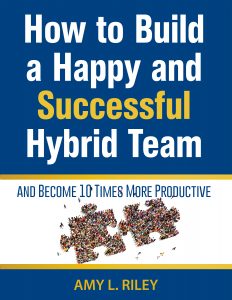
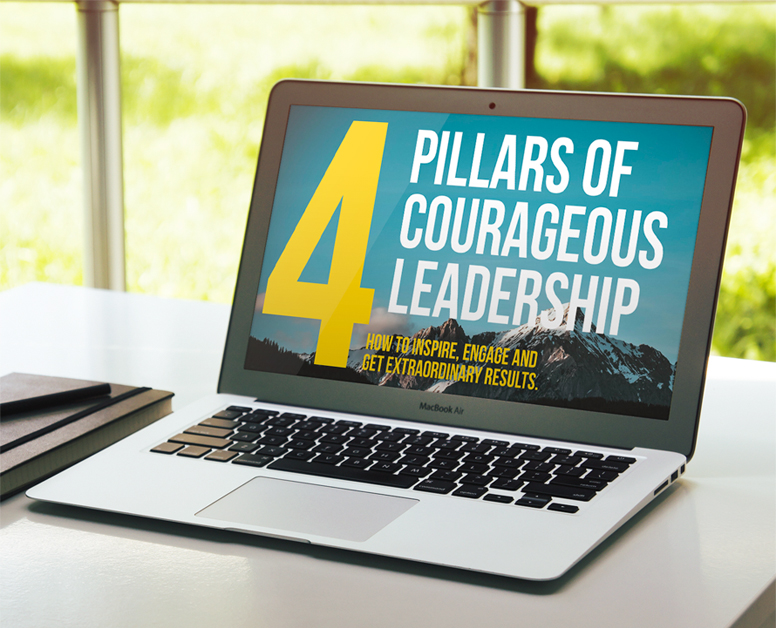 A Summary of The Courage of a Leader® 4 Pillars
A Summary of The Courage of a Leader® 4 Pillars